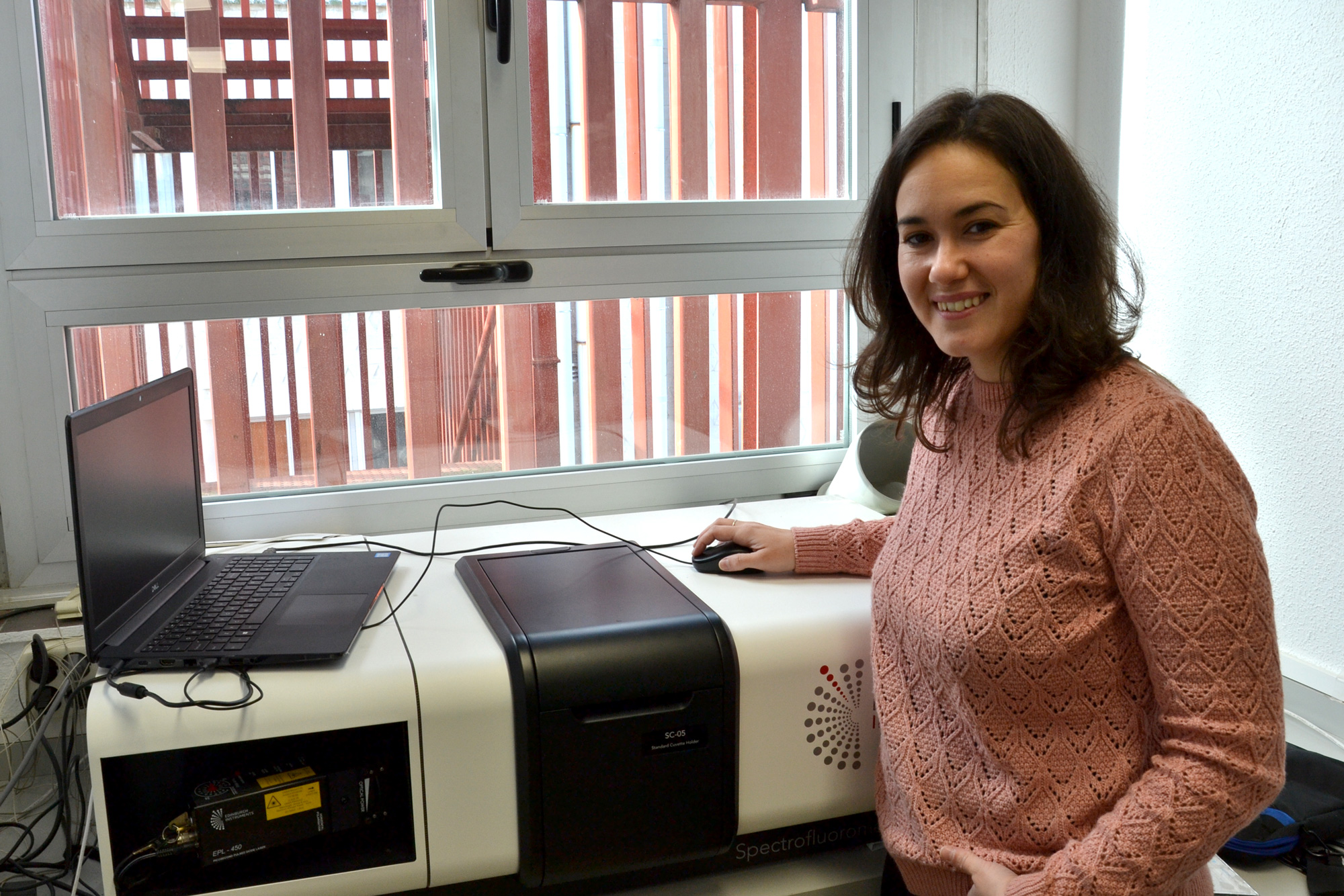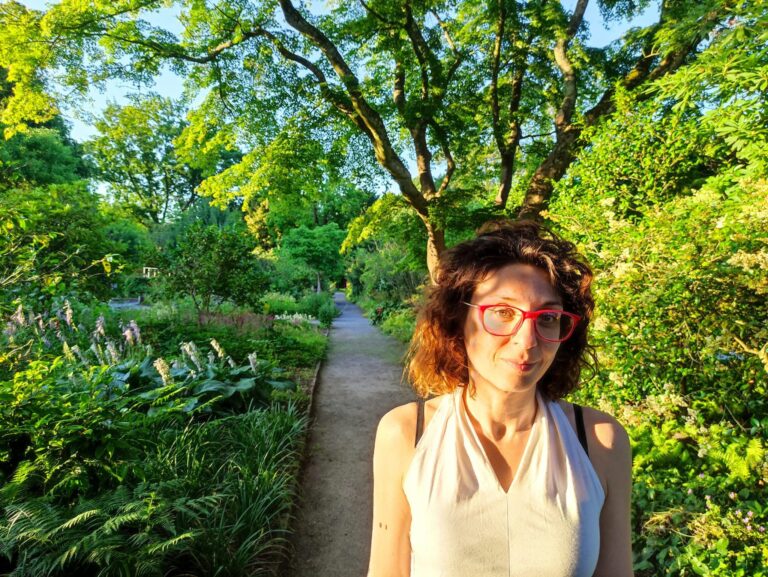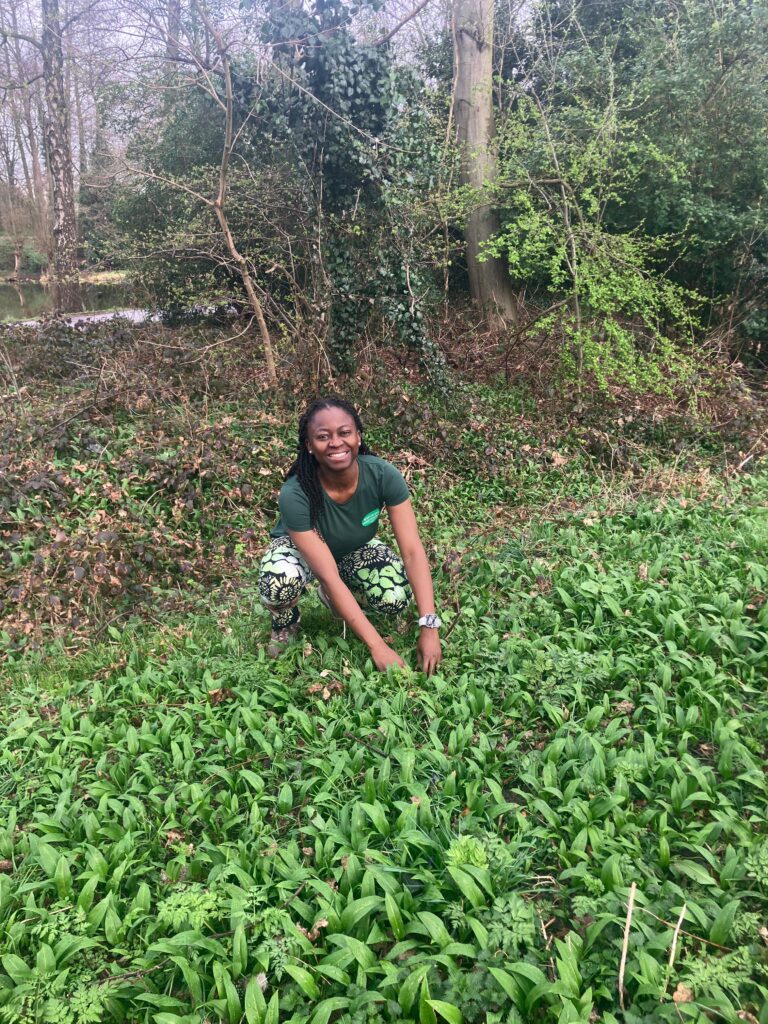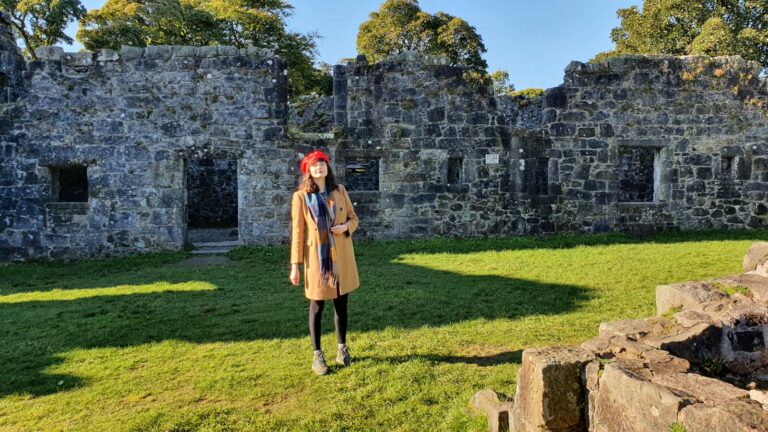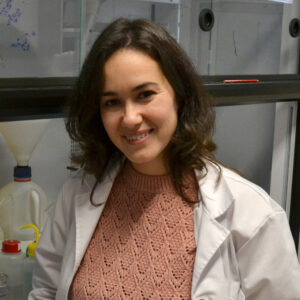
Everything is Chemistry – An Interview with Dr. Leyre Marzo
In the series “33 questions” we introduce, in no particular order, our WiRe Fellows who are currently working on a research project here at the University of Münster. Why 33? Well, if we think of the rush hour of life, it is kind of the age that lies in its middle. And we also like the number😉.
In today’s episode we are speaking with Dr. Leyre Marzo, chemist and expert in photocatalysis.
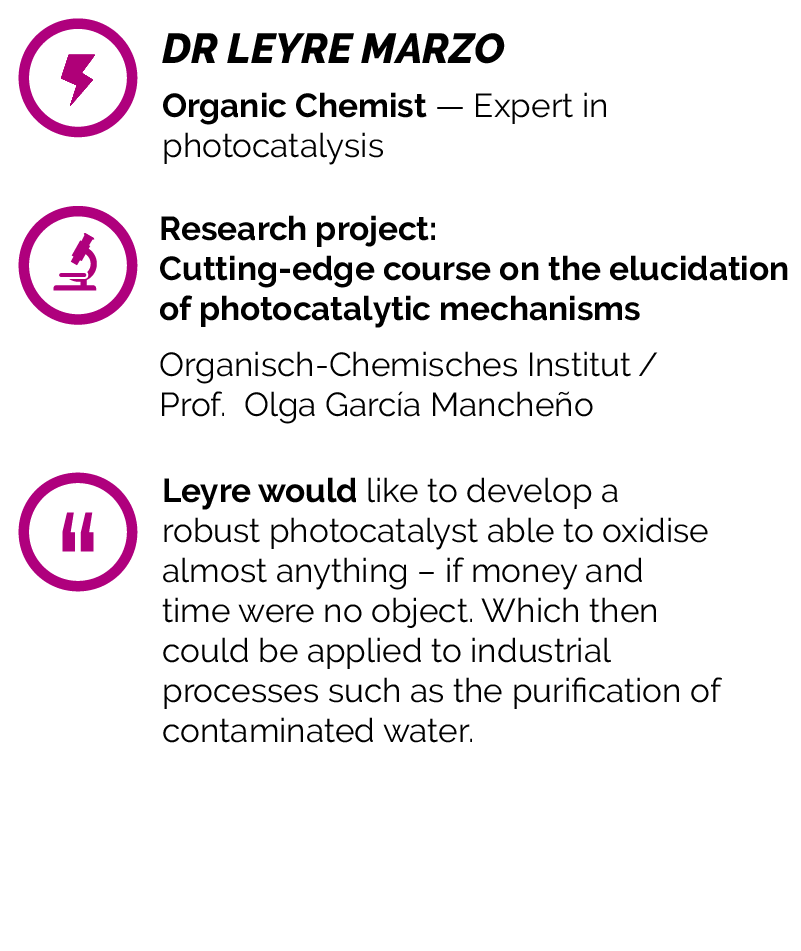
1. What motivated you to work in the field of photocatalysis?
The novelty and amazing chemistry that can be done – in that sense, it is very different to the project I developed during my PhD!
2. Describe your daily work in three words.
Organise, read and write, brainstorming.
3. Describe your research topic in three words.
Sun, light, ecofriendly.
4. A good photochemist needs?
Patience and perseverance.
5. What is the best experience you have had as a scientist / researcher?
The success after a hard fight to achieve a new chemical transformation.
6. What was your biggest research disaster?
To give the opposite configuration of a chiral molecule because the analysis of the R-X was incorrect.
7. Which (historical) important scientist would you like to have dinner with? What would you ask?
Giacommo L. Ciamician. I would ask him to tell me how it all started in the beginning of photochemistry, and ask him how it feels to found a new field of research.
8. If time and money were no object: Which research project would you like to do?
I would like to develop a robust photocatalyst able to oxidise almost anything. Not only to apply it to develop new synthetic transformations, but also to apply it to industrial processes, such as the purification of contaminated waters.
9. What is your favourite research discipline other than your own?
Psychology.
10. What do you consider the greatest achievement in the history of science / your field?
Electricity and antibiotics.
11. Which experience in the world of science disappointed you most?
The use of any discovery to cause death, either in wars, in terrorist attacks or in any other way.
12. What was the funniest moment you had in science?
When I started in the research lab, one day I was preparing a compound of a very large scale (500g) and I had a small „accident“ (don’t worry, with all the security measures in place, it was actually perfectly fine) related to an acid-base reaction that got very exothermic and began to behave like a volcano. It looked like it was going to explode, so I got very scared, and while there was no one around I started screaming: “Help!!! Help!!!” like if something really bad was going on. My supervisor came out very scared too, but by the time he arrived, the volcano was almost over, and everything was just a scare. From that moment they started making fun of me about the way I was screaming!
13. How did you survive your PhD time?
By spending my free time with friends and family.
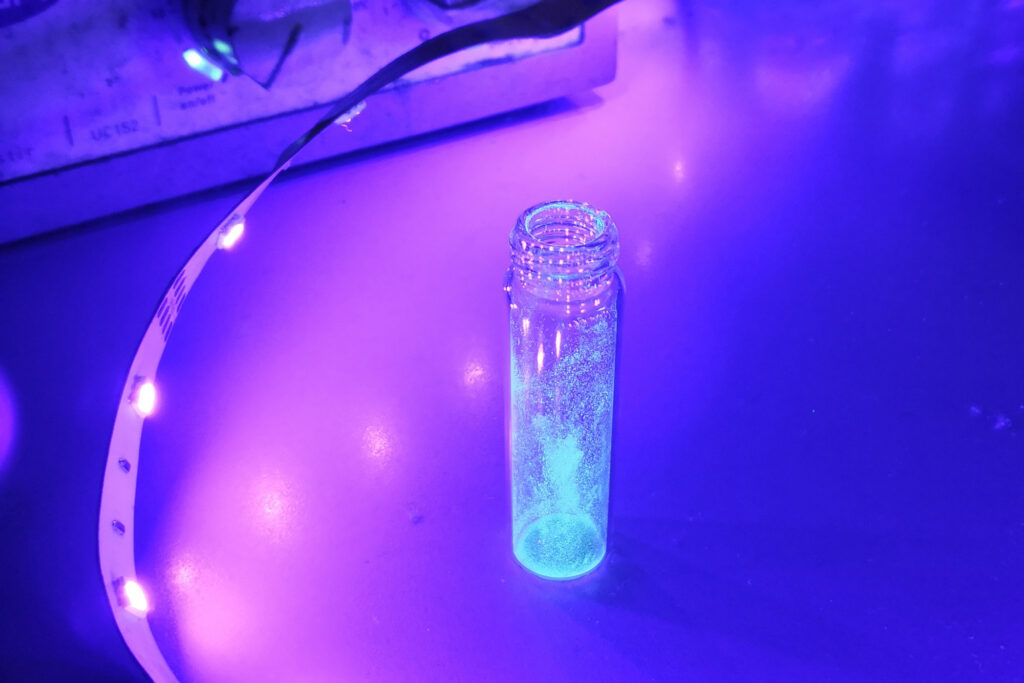
14. What direct or indirect relevance does your research have for society?
Chemistry is the fundamental part of life, because not only is our entire body made up of it, but also everything we eat, drink or use is made out of chemistry. My field of research deals with the development of chemical transformations using the energy of visible light. Thus, the implementation of such processes at industrial scale might be a revolution in terms of economics and sustainability.
15. How did you imagine the life of a scientist / researcher when you were a high school student?
Actually, I didn’t think about it at that time. When I was in high school, I did not want to become a chemist. I wanted to do something related to nature and spend the days surrounded by nature, but during the last year of high school I enjoyed studying chemistry so much, that I decided to go for it.
16. What do you like most about the „lifestyle“ of a scientist? And what least of it?
What I like and sometimes also dislike the most is that you need to be constantly updated about what is being done in the field, and this can be challenging when working in a field that develops and grows very fast, but at the same time, it is very satisfying for the mind.
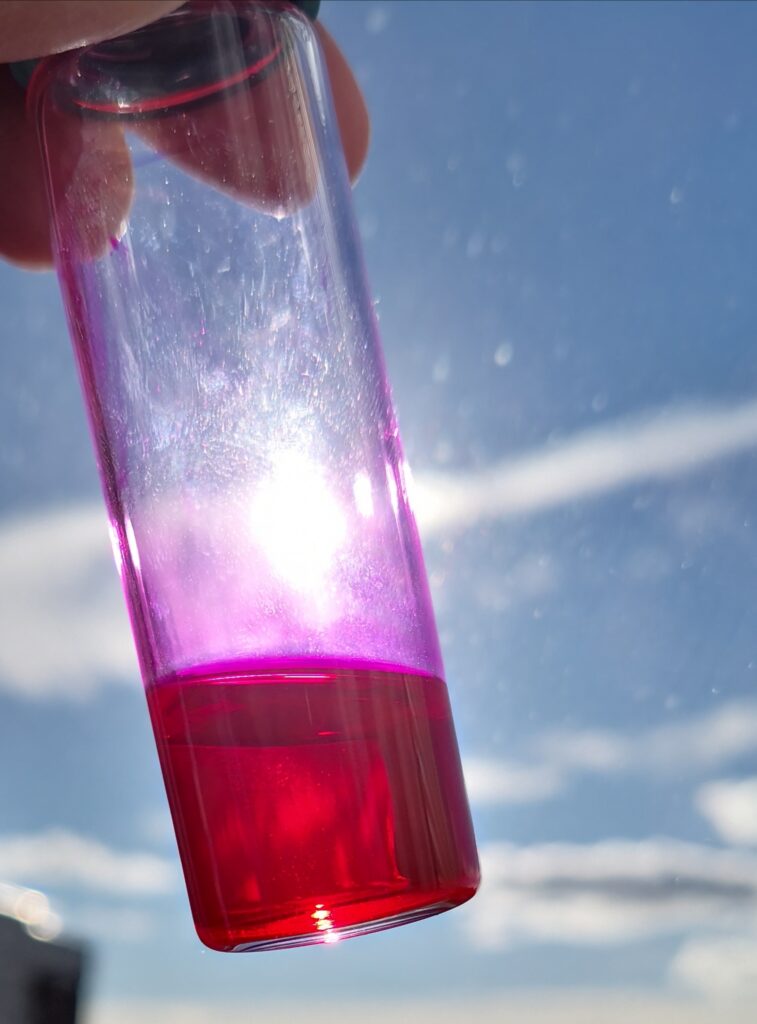
17. Do you think your career would have evolved differently if you were a man?
In the past years probably not, but the last year and a half it would have been completely different, because pregnancy has kept me from being able to attend to some of my duties. This resulted in a serious delay of my publications, and therefore was detrimental for my CV.
18. If you were the research minister of Germany, what would you do to improve the situation of women in science?
From my experience, women in Germany have a lot of opportunities.
19. If you had a daughter, what would you advise her not to do?
I actually have a daughter and I would like to be able to teach her the importance of working hard. I will tell her that there are no limits, only those you impose on yourself. At home she will learn that boys and girls are equal, and so she can pursue the same goals as boys. And overall, I will advise her to be independent, or in other words, to not depend on anyone (man or woman), neither economically nor emotionally.
20. What is the biggest challenge for you when it comes to balancing family and career?
To be completely productive during my working hours so I don’t have to work afterwards.
21. How often do you as a friend / partner / mother / daughter feel guilty when you have to meet a deadline again?
Every time I have a deadline that makes me work extra hours.
22. How did you imagine your future as a child? What profession did you want to pursue?
As I mentioned before I wanted to do something with nature, but I had different periods. First, I wanted to be a forest ranger, then farmer, and then a veterinarian. But finally, I decided to become a chemist.
23. How do you keep your head clear when you are stressed?
If I’m under a lot of stress sports is a great outlet for me, it helps me to calm down. Other times I just make a list with everything I have to do and organize myself.
24. What is your favorite German word?
Unterschrift.
25. What makes you most happy about the world?
To see that, beside all the bad things, there are still committed and generous people willing to offer their time and abilities to other people who might need it.
26. What or who inspired you to become a chemist?
Maybe my aunt. She is also a chemist.
27. Which of your traits bothers you the most in your daily work?
Bureaucracy.
28. What worries you most about the world?
Climate change and economic differences between countries (in particular the southern continents).
29. Your favourite TV series?
I don’t have favourite one, but I enjoyed a lot watching Friends.
30. Which hobby have you given up for a life in academia?
Playing drums.
31. If you could travel in time: in which epoch and at which discovery or event would you have liked to have been there?
When fire was “discovered”. This was a complete revolution, and I would like to see how they reacted the first time they could start it.
32. What are the advantages and disadvantages of doing a Research@home-WiRe-fellowship?
Advantages: I optimise my time more than at work, because I don’t have any distractions. Additionally, it is more comfortable for me to work from my desk at home when I have to work on my computer.
Disadvantages: You don’t socialise with other people that much.
33. What is your favourite place to relax from research during Corona?
My living room and the park I usually go for a walk through

